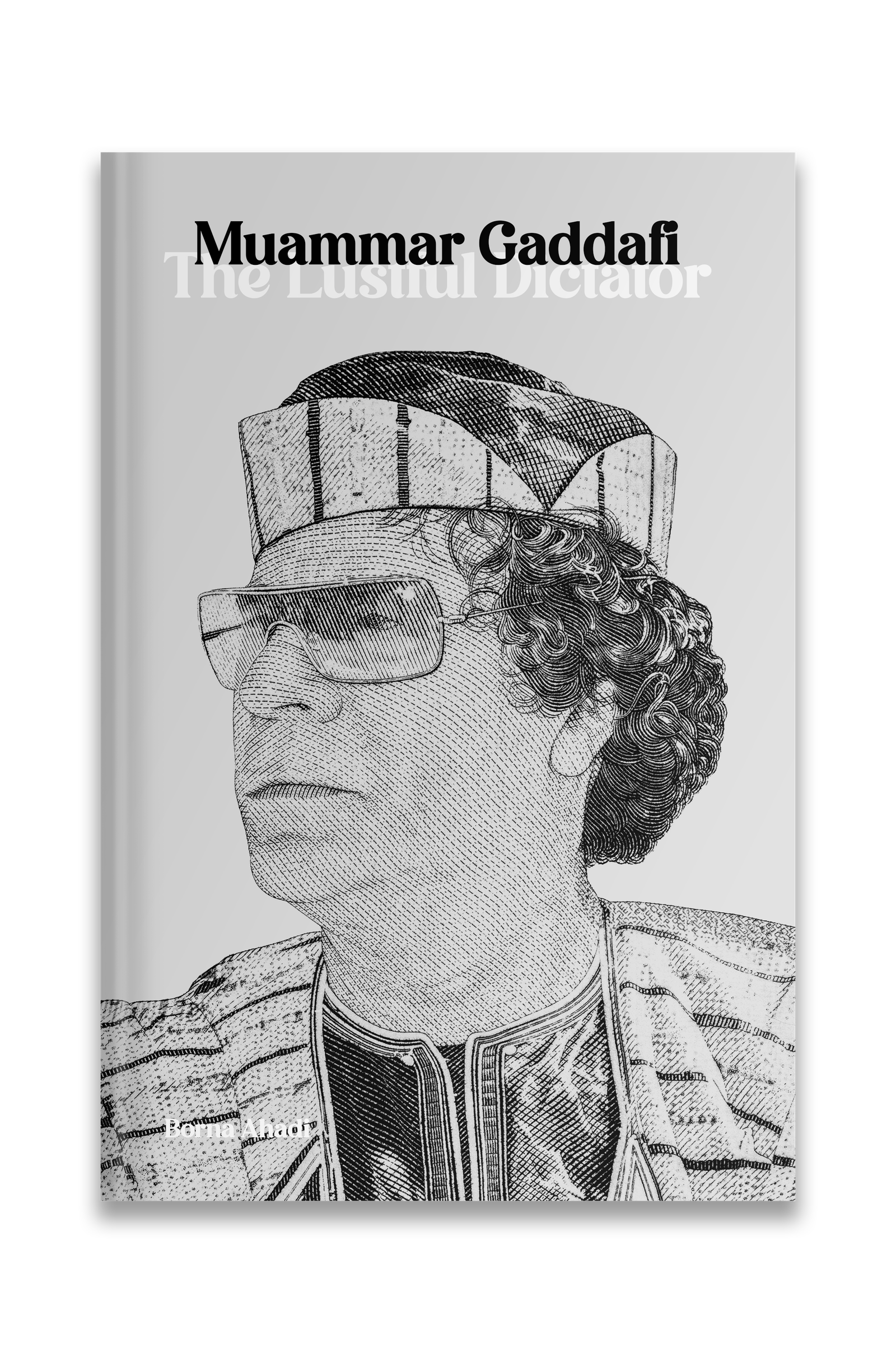

Introduction
You’ve probably seen the iconic film The Wolf of Wall Street, just like I have. The movie, starring Leonardo DiCaprio, captures the chaotic life of Jordan Belfort, a stockbroker who amassed a fortune through questionable means. In one of the film’s most memorable moments, Belfort teaches his ragtag group of employees how to make an absurd amount of money with a simple tool: the telephone. But take a moment and think back to those employees. Who were they? What did they look like? What kind of people were they?
Were they brilliant minds fresh out of Ivy League schools, brimming with intelligence and academic accolades? Were they the top graduates from prestigious institutions like Harvard or Stanford, with their lives meticulously planned out? Absolutely not. In fact, they were quite the opposite. Belfort didn’t recruit geniuses; he plucked ordinary, even reckless, individuals off the street—people who most of society would probably overlook. They were, by all appearances, careless and unreliable, hardly the kind of people you would expect to become wealthy. Yet, here they were, making millions. How?
What made these seemingly “foolish” individuals so successful wasn’t any extraordinary skill or deep financial knowledge. It was something far simpler, but far more profound. They had the grit to repeat a scripted sales pitch over and over again. They picked up the phone relentlessly, dialing hundreds of times until they made a sale. And here’s the most interesting part—there’s no exaggeration in that depiction. Belfort’s story, while dramatized for entertainment, is rooted in real events and behaviors that defy conventional logic about success.
The concept of so-called “idiots” or seemingly unqualified individuals finding wealth isn’t just limited to Hollywood storytelling. As I sat with this idea, I started to question a recurring theme in the lives of many wealthy individuals: Why is it that people who appear less intelligent, less educated, and often, less polished seem to accumulate wealth more quickly than those who are considered smart and well-educated? Why do we frequently see people without degrees or with limited formal education succeed beyond all expectations?
The traditional path to wealth—go to school, get a degree, find a stable job—has been sold to us for generations. But, if you look closely at some of the world’s richest and most successful people, you’ll notice that many of them have strayed far from this formula. The legendary investor Warren Buffett once said, “The best education you can get is investing in yourself, and that doesn’t mean college degrees. It means learning something you love.” Indeed, many of the wealthiest individuals today have built empires by taking unconventional paths, often rejecting the academic route entirely.
Look at individuals like Steve Jobs or Bill Gates. Jobs famously dropped out of college, and Gates left Harvard to pursue a dream. Neither of them followed the conventional wisdom of finishing their formal education before embarking on a career. And while they were undeniably brilliant, they shared something in common with Belfort’s crew of seemingly foolish stockbrokers—they acted when others hesitated. They were persistent, relentless, and, most importantly, they didn’t let the fear of failure or the pressure of traditional success paths dictate their choices.
The world’s richest often aren’t the smartest in a conventional sense, but they are the most willing to take risks, make decisions quickly, and persevere despite challenges. Studies have shown that emotional intelligence (EQ), rather than IQ, plays a critical role in financial success. This means that while raw intelligence might help you solve complex problems, emotional intelligence helps you navigate people, build relationships, and seize opportunities—skills that are far more valuable when it comes to making money.
In this book, I will explore the lives and stories of various individuals who have defied the odds and amassed wealth, despite being labeled as “idiots” or outcasts. From self-made millionaires to those who’ve stumbled into fortune through sheer persistence, we’ll dissect what sets them apart from the so-called “smart” individuals who are often left behind, struggling financially despite their academic and intellectual accomplishments.
We’ll look at historical examples, such as Henry Ford, who had limited formal education but revolutionized the automobile industry and became one of the wealthiest men of his time. We’ll examine modern-day entrepreneurs, such as Mark Zuckerberg, who left the safe confines of academia to pursue innovation. Through these stories, we’ll uncover a recurring theme: those who make it big are not necessarily the ones with the highest IQs, but those who are bold enough to follow their instincts, take action, and embrace failure as a stepping stone to success.
This book will take you on a journey through the philosophies and mindsets that drive these “rich idiots.” You’ll learn how they think, how they act, and why their unorthodox methods often lead to financial success. We’ll explore the psychology of wealth, delving into concepts from philosophers like Friedrich Nietzsche, who once wrote, “That which does not kill us makes us stronger.” Nietzsche’s words ring true in the world of wealth-building: those who can endure failure, rejection, and uncertainty often emerge stronger and wealthier in the long run.
By the end of this book, you will have a clear understanding of why some seemingly foolish individuals achieve great wealth while others, who appear smarter, struggle. We’ll break down the myths surrounding intelligence and success, and you’ll discover the surprising factors that contribute to financial abundance. More importantly, you’ll gain insights into how you can adopt these mindsets and principles in your own life to start building the wealth you desire.
In the end, the path to wealth isn’t paved by intelligence alone. It’s shaped by boldness, perseverance, and the willingness to act when others hesitate. The rich idiot succeeds not because they know more but because they do more. The takeaway? Success isn’t about being the smartest person in the room—it’s about being the one willing to take risks, fail, and keep going.
The Fool’s Fortune: Success Through Grit, Not Genius
One of the real-life managers from The Wolf of Wall Street once reflected on their experience working for Jordan Belfort, saying that their job required them to travel across the United States, visiting countless companies and industries. The goal was simple yet ambitious: go from city to city, street to street, and find anyone with significant wealth. After some time, their investigation led to a surprising revelation. Most of the wealthy people they encountered, whether they were famous actors or owners of local businesses, appeared to be nothing more than “fools with pockets full of money.”
This realization challenges a common assumption: that wealth and intelligence go hand in hand. What they discovered was quite the opposite. Many of the richest individuals, despite their lack of sophistication or business acumen, had managed to amass significant fortunes. It wasn’t their intelligence or education that set them apart, but their ability to accumulate wealth through bold action, risk-taking, and sometimes sheer luck.
As we dig deeper into the lives of the so-called “rich idiots,” we’ll explore the factors that allowed them to rise to the top despite not fitting the traditional mold of a successful person. In many cases, it isn’t intelligence or skill that creates wealth but an audacity to act when others hesitate. Their willingness to pursue opportunities, often in unconventional ways, becomes a key driver of their financial success.
The takeaway from this story is clear—wealth does not always favor the intelligent or well-educated. It often rewards those who are bold enough to take risks, even if they appear foolish to others. Success is more about relentless pursuit and action than it is about being the smartest person in the room.
Of course, this doesn’t mean that all wealthy individuals are actually stupid. The point here is that, from our perspective, many of them didn’t seem well-educated or particularly savvy. Now, I personally have no problem with the idea that anyone can become rich, but I’m sure, just like me, you might initially struggle to wrap your head around this. How many times have you found yourself thinking, “I’m smarter than they are, so why do they make more money than me? How is it that I’m worrying about the down payment on a house and have been dreaming for years about buying a second-hand car, while they are living in luxurious homes filled with several high-end cars?”
The Intelligence Myth: Wealth Isn’t About Academic Success
It’s a thought that lingers, especially when you compare the endless stream of financial concerns you face with the seemingly effortless wealth of these individuals. They seem to travel to exotic locations whenever they want, while you spend months planning and saving just to go on a short holiday. You might ask yourself, “How is it possible that I have a better education, yet they are the ones creating jobs for hundreds of people just like me?”
This mental battle is something many of us go through. We’ve been taught our entire lives that success is directly related to intelligence and education. Society paints a picture where those with degrees, high IQs, and academic accolades are the ones destined to achieve financial success. We’re often led to believe that the path to wealth is clear: study hard, go to a prestigious school, get a good job, and slowly climb the corporate ladder. Yet, when we look around, reality seems to tell a different story.
Many wealthy individuals we encounter seem to have sidestepped this traditional route altogether. Sure, some of them are brilliant and innovative minds, but others appear almost shockingly underprepared for the wealth they’ve amassed. And this contradiction stirs something deep within us. It forces us to question the rules we’ve been following for so long. How can people who seem so clueless end up with so much?
Part of the answer lies in understanding that success doesn’t necessarily follow a linear path. Intelligence, as measured by academic standards, is just one factor—often a minor one—in the equation of wealth. More often than not, what sets these individuals apart is their willingness to act and take risks where others hesitate. While the educated and intelligent among us may spend time overanalyzing and contemplating, these so-called “fools” jump in headfirst. They fail, learn, and try again—repeating this process until they stumble upon success.
Take, for example, Richard Branson, the billionaire founder of Virgin Group. Branson has openly admitted that he struggled with dyslexia and didn’t excel in traditional academic settings. Yet, he’s built a business empire worth billions. His success didn’t come from academic brilliance but from an adventurous spirit and a willingness to fail spectacularly before finding the right formula for success. Branson once said, “You don’t learn to walk by following rules. You learn by doing and falling over.” This mindset—of doing instead of waiting, of acting rather than overthinking—separates those who build wealth from those who merely dream about it.
This isn’t to say that education and intelligence aren’t important. Of course, they are. But the key lies in how you use them. Many intelligent individuals are trapped in analysis paralysis, constantly weighing pros and cons without ever making a bold move. Meanwhile, those we perceive as “fools” are out there making deals, trying new things, and failing more often—but each failure brings them closer to success.
Another critical factor is that many wealthy individuals understand the value of leveraging other people’s skills and expertise. They may not know everything, but they know how to find the right people to fill the gaps in their knowledge. They don’t waste time trying to be perfect in every area—they hire experts, delegate tasks, and focus on the big picture. This ability to assemble the right team and trust others to execute their vision is a key to their success.
Moreover, many of these individuals have a high tolerance for risk. Where others see uncertainty and danger, they see opportunity. They understand that no reward comes without risk, and they’re willing to bet on themselves. Even when they lack the conventional knowledge or experience, their confidence and willingness to take risks give them an edge over those who play it safe. Warren Buffett once remarked, “Risk comes from not knowing what you’re doing.” The difference is, these so-called “idiots” are willing to embrace that risk and learn as they go, while others shy away from it.
Another element we often overlook is timing and luck. As much as we like to believe that success is purely the result of hard work and intelligence, there’s no denying that luck plays a role. Being in the right place at the right time, meeting the right people, or stumbling upon the right idea can sometimes be the turning point. But even here, those who are willing to take risks and put themselves out there are more likely to encounter those lucky breaks. In the words of Roman philosopher Seneca, “Luck is what happens when preparation meets opportunity.” These individuals may seem foolish, but they put themselves in a position to get lucky.
So, while it’s easy to scoff at the success of these “rich idiots,” there’s a lot we can learn from them. Their success isn’t an accident—it’s the result of a mindset that values action over hesitation, risk over safety, and persistence over perfection. They understand that wealth isn’t reserved for the smartest or the most educated; it’s there for those who are willing to go after it, no matter how foolish they may appear to others.
In the end, the distinction between the “rich idiot” and the educated but struggling individual lies not in intelligence but in action. The rich are often those who are willing to take chances, fail, and learn through experience. They know that waiting for the perfect opportunity or relying solely on their intellect won’t get them where they want to be. Instead, they jump in, take risks, and figure things out along the way. For those of us who’ve spent years playing it safe, the lesson is clear: wealth rewards those who dare to act, not those who overthink.
The age-old debate of whether knowledge or wealth is more valuable is one that the educational system tries very hard to ingrain in our minds. We are often led to believe that we must choose between these two paths, but the reality is far more complex than a simple dichotomy. For centuries, the narrative has been skewed by the notion that intelligence, as defined by academic achievements, automatically equates to success. However, this is a significant misconception.
One of the critical aspects to consider is that the definition of intelligence isn’t necessarily the one taught in school. Just because someone has studied at a prestigious university and graduated with top honors doesn’t mean they are more intelligent or better equipped to succeed than others. Intelligence, in its truest form, is a broad concept that encompasses much more than academic performance.
Take the example of Robert Oppenheimer, the physicist who led the creation of the atomic bomb. He was undeniably a genius in his field, but was he smart enough to realize that such a weapon should never have been handed over to governments for political use? The moral implications of his creation haunted him for the rest of his life, as he once remarked, quoting Hindu scripture, “Now I am become Death, the destroyer of worlds.” This illustrates that even the most brilliant minds can overlook ethical consequences or fail to foresee the broader impact of their actions.
So, does formal education or academic intelligence always lead to success? Clearly not. Wealth creation, in particular, requires a different kind of intelligence—one that values practical skills, emotional intelligence, and the ability to navigate risks and opportunities in real-world scenarios. For example, many of the world’s most successful entrepreneurs did not achieve their status through traditional education. Steve Jobs, Bill Gates, and Mark Zuckerberg, among others, left school early to pursue their passions, relying on creativity, vision, and perseverance rather than academic accolades.
What’s essential to grasp is that intelligence has no fixed definition. It’s a fluid concept, shaped by context and the individual’s ability to adapt. In many cases, those who excel outside of academia are the ones who understand this flexibility and refuse to be bound by conventional measures of intelligence. They leverage practical knowledge, connections, and experience to get ahead. As the saying goes, “It’s not what you know, but who you know.” This highlights the importance of social intelligence and networking—two factors that play a critical role in wealth-building but are often overlooked in traditional educational settings.
In fact, studies have shown that success often hinges more on emotional intelligence (EQ) than on intellectual intelligence (IQ). While IQ measures one’s ability to solve problems and understand complex ideas, EQ involves the ability to manage emotions, build relationships, and make decisions under pressure. Daniel Goleman, a psychologist and author, has extensively explored this in his work, stating, “In a very real sense, we have two minds, one that thinks and one that feels.”
In the end, the debate between knowledge and wealth is not as clear-cut as it seems. Success is not solely the domain of the academically inclined, and many who have made significant fortunes have done so by thinking outside the box, taking risks, and applying practical intelligence. It is a reminder that the world does not operate according to the rigid structures that we are taught in school. Intelligence is far more nuanced, and those who understand this can find success in ways that go beyond the limitations of formal education.
The lesson here is that wealth and intelligence are not mutually exclusive, but neither are they inherently connected. True success often lies in understanding that intelligence is not limited to academic achievement. Emotional intelligence, adaptability, and practical skills can be just as valuable, if not more so, in the journey toward financial success. The key is to redefine what it means to be intelligent and to embrace a broader understanding of the skills that truly lead to wealth and achievement.
The Surprising GPA of Millionaires
It’s interesting to note that the average college GPA of American millionaires is only 2.9. To put this into perspective, if you were to convert this GPA to a grading scale outside the U.S., it would indicate that the individual is teetering on the edge of academic failure. In fact, someone with this GPA could be at risk of being expelled if they put in any less effort into their studies.
What does this tell us? Quite simply, most wealthy individuals are neither academic geniuses nor highly educated in the conventional sense. Instead, many of them have average intelligence and struggled with their studies. Yet, they’ve gone on to achieve remarkable financial success. This challenges the common assumption that only the smartest or most academically inclined people rise to the top.
The world is filled with examples of millionaires and billionaires who didn’t excel in school. Henry Ford, one of the pioneers of the automotive industry, had very little formal education. Richard Branson, the founder of Virgin Group, left school at the age of 16. And, as mentioned earlier, both Steve Jobs and Bill Gates famously dropped out of college. These individuals are a testament to the fact that intelligence, as measured by academic standards, isn’t the sole ingredient for success.
In fact, what many of these wealthy individuals lacked in academic prowess, they made up for in other areas—creativity, determination, and the ability to take risks. Studies show that traditional IQ measures are not the only predictor of success. Many millionaires possess what we call “practical intelligence,” or the ability to navigate complex, real-world situations. This includes decision-making under pressure, problem-solving, and, perhaps most importantly, resilience in the face of failure.
What’s also important to highlight is that wealth-building requires skills that aren’t necessarily taught in school. Financial literacy, risk management, people skills, and emotional intelligence all play a critical role in achieving financial success. The ability to learn from failure and quickly adapt to new circumstances often outweighs the advantages of academic brilliance. As Warren Buffett once said, “It’s not necessary to do extraordinary things to get extraordinary results.”
This comparison between academic performance and wealth demonstrates a vital point: being highly educated or academically successful does not guarantee financial success. Many of the world’s wealthiest individuals have average intelligence, as measured by traditional standards, but they excel in practical areas like decision-making, risk-taking, and resilience. In the end, it’s not about how well you performed in school—it’s about how well you navigate the opportunities and challenges that life throws your way.
The Irony of Success: Escaping School to Achieve Wealth
The truth is—and experience confirms this—very few individuals who excelled academically in school go on to make millions of dollars each year. Typically, those who performed well in school end up with stable jobs that provide them with an average salary, but not extraordinary wealth. These individuals are often praised for their achievements in education, yet their financial success rarely reaches the level of those who perhaps struggled academically but thrived in the real world.
It’s a curious phenomenon: those who were at the top of their class often find themselves stuck in conventional career paths, while those who rebelled against the system, dropped out, or simply coasted through school sometimes emerge as the wealthiest. The very traits that schools emphasize—obedience, conformity, and mastering a predefined curriculum—do not necessarily translate into the qualities that breed entrepreneurial success.
I am reminded of a quote I once saw on the back of a luxury car. It read: “The result of skipping school.” At the time, I laughed to myself, thinking about the foolishness of the person driving the car. But the more I reflect on it, the more I realize there’s an undeniable truth behind that statement. For many successful individuals, breaking away from the traditional academic path was not a setback, but a springboard toward wealth.
Take Richard Branson, for instance, who famously dropped out of school at 16 and built a business empire. Or the well-known example of Steve Jobs, who didn’t finish college yet transformed the tech world through Apple. These individuals didn’t follow the rules, and instead, charted their own courses. By stepping away from the rigidity of formal education, they were able to embrace creativity, innovation, and risk—qualities that are often downplayed in academic settings but are crucial in the business world.
Success stories like these challenge our assumptions about intelligence and success. Society often teaches us that academic excellence is the key to a prosperous life, yet so many wealthy people have thrived precisely because they didn’t fit that mold. Instead of focusing on what schools value—good grades and compliance—they relied on qualities like resilience, adaptability, and a willingness to take risks. It’s not to say that education is unimportant, but rather that financial success often requires a different skill set, one that isn’t always taught in school.
This comparison between academic success and financial wealth reveals a significant truth: following the rules and excelling in school doesn’t always lead to extraordinary wealth. The drivers of success in the business world—risk-taking, creativity, and resilience—are often found in those who rebel against traditional education. The irony is that those who “escaped” the confines of school may be the ones who drive the luxury cars, living a life that most academically successful individuals can only dream of.
The Myth of the Tech Billionaire Genius
Let’s clear something up right from the start. I know many of you might be thinking, “If IQ doesn’t matter, what about tech billionaires? Don’t they have to be geniuses to succeed in industries like technology and innovation?” Or maybe you’re wondering, “If I’ll never be as smart as those people, how can I possibly become wealthy like them?”
Well, here’s the truth—most of the tech billionaires you see aren’t geniuses. At best, they’re like the lead singers of a massive band who know how to direct the music, but they aren’t necessarily the most talented musicians in the group. In fact, many of these individuals are more like actors playing the role of a genius rather than being one.
But why do they project this image of genius? It’s quite simple: it’s part of their business model. They need to convince investors that they are exceptionally intelligent to get them to put money into their startups or investment funds. And the easiest way to do that is by selling the narrative that they are smarter than everyone else. They use this perception of brilliance as a means to build trust, to make you believe that your money is safer with them than it would be anywhere else.
Take Elon Musk, for example. Musk is undeniably a visionary, but is he the world’s greatest engineer? Probably not. What he does exceptionally well is leading and motivating teams of experts who execute his vision. He isn’t coding the software behind Tesla or building rockets at SpaceX with his own hands. Instead, he plays the part of the genius innovator because it’s a critical aspect of his public persona and, consequently, his business strategy. The same can be said for many other tech billionaires, from Mark Zuckerberg to Jeff Bezos. They leverage the perception of genius to inspire confidence and attract investments, but they rely on the expertise of large teams to bring their ideas to life.
In reality, most of these billionaires have mastered the art of storytelling and leadership rather than any particular technical skill. They know how to sell their vision and manage teams of talented individuals who handle the complexities of engineering, product development, and scaling. Bill Gates, for example, wasn’t the best programmer at Microsoft—Paul Allen, his co-founder, was widely considered the more technical of the two. But Gates knew how to build a business, attract investors, and scale operations, which is what ultimately turned Microsoft into a global empire.
This leads us to another important point: success, especially in the tech industry, often comes down to how well you can lead and how compelling your story is, not how high your IQ is. Steve Jobs was known for his ability to create a narrative around Apple products that made them more than just gadgets—they became status symbols, cultural icons, and lifestyle choices. Jobs was an exceptional marketer and visionary, but he wasn’t an engineer.
So, when you look at these billionaires, don’t be fooled by the narrative that they are successful simply because they are smarter than everyone else. What they excel at is leadership, vision, and the ability to surround themselves with brilliant people. They’re experts at creating the illusion of being the smartest person in the room, but their real skill lies in persuading others to believe in their genius.
The key takeaway here is that becoming a billionaire, particularly in the tech world, isn’t just about intelligence. It’s about leadership, vision, and the ability to inspire trust. Many tech billionaires are skilled at positioning themselves as geniuses to gain investor confidence, but their true talent lies in managing and leading talented teams. For those of us who aren’t “geniuses,” this should be encouraging. You don’t need to be the smartest person in the room to succeed; you just need to be the one who knows how to lead, inspire, and create a vision that others will believe in.
The Rise of the Fake Genius: When Fraud Masquerades as Brilliance
This is where the world of self-help and get-rich-quick schemes intersects with an unsettling trend: the rise of fake geniuses. As I’ve mentioned in the world of self-help, this environment creates the perfect breeding ground for con artists to emerge, posing as intellectual or business prodigies. Take, for example, the notorious case of Elizabeth Holmes, the founder of Theranos, who was once hailed as one of the youngest self-made billionaires in the world.
Holmes, at one point, was ranked by Forbes as the 11th richest woman globally. Many people believed she was a groundbreaking genius, someone who had revolutionized the healthcare industry. But as her fraudulent actions came to light, it became clear that Holmes wasn’t a genius at all. Instead, she was a scammer, obsessed with crafting the image of brilliance. She went so far as to imitate the habits and appearance of Steve Jobs, even adopting his iconic black turtleneck look. Yet, as history now shows, she was ultimately convicted of fraud, and at the time of writing this book, she is serving her sentence in prison.
Holmes’ downfall highlights a crucial point: the allure of genius, especially in the business and tech world, can blind people to reality. Investors, media outlets, and even ordinary people want to believe in the myth of the prodigy—the person who is smarter, quicker, and more innovative than the rest of us. But in the end, Holmes wasn’t a genius; she was just a clever impersonator who managed to deceive some of the world’s most influential people for a time.
Another example of this phenomenon is Sam Bankman-Fried, the so-called “genius” of the cryptocurrency world. Like Holmes, Bankman-Fried enjoyed a meteoric rise to fame, with people lauding him as a financial prodigy who could single-handedly revolutionize digital currencies. But as with Holmes, the reality turned out to be far more disappointing. It soon became apparent that Bankman-Fried wasn’t a brilliant innovator—he was a fraudster who manipulated people into believing in his genius. Today, like Holmes, he too is behind bars, paying the price for his deception.
What these examples demonstrate is that the perception of genius can be a dangerous facade, and the business world is rife with people who are willing to exploit this image for their own gain. Holmes and Bankman-Fried played the part of visionary leaders, but in reality, they were more concerned with how they appeared to others than with building sustainable, ethical businesses. They fooled investors and the public alike, proving that success doesn’t always come from intelligence—it can also come from the ability to convince others that you’re a genius, even when you’re not.
The takeaway here is a cautionary one: not everyone who appears to be a genius truly is. In many cases, the image of brilliance is nothing more than a carefully constructed illusion designed to attract attention and money. The stories of Elizabeth Holmes and Sam Bankman-Fried serve as reminders that wealth and success can often be the result of manipulation, not intelligence. For those who aspire to real success, the lesson is clear: substance will always outlast style, and true genius is built on more than just perception.
The Genius Myth: Why We Still Believe in the Brilliance of the Wealthy
If we take a closer look at the stories of many so-called geniuses from the past, we begin to see a pattern. Their lives, in reality, often bear striking similarities to the examples I’ve already mentioned—Elizabeth Holmes, Sam Bankman-Fried, and others. The interesting thing, however, is that despite countless examples of fraud and deception in the business world, we still cling to the belief that these individuals are brilliant minds who have earned their wealth through sheer intelligence. Why do we so desperately want to believe in the myth of the genius billionaire?
It’s not as though people gather in a room and devise plans to become wealthy by pretending to be geniuses. That’s not how wealth works. In fact, as I’ve mentioned in The Hidden Secrets of Wealth, the real world doesn’t reward fantasy or daydreams. Success and wealth don’t come to those who merely dream about them; they come to those who create real value. Yet, time and again, we fall for the illusion that the ultra-wealthy are geniuses, even when they’ve built their fortunes through manipulation, fraud, or sheer luck.
This phenomenon can be traced back to the way society glorifies success. We have a deep-rooted desire to believe that the people who are wealthier, more successful, or more famous than us must be smarter than us. It’s comforting in a way—it helps us make sense of a world where the distribution of wealth seems so unequal. If we convince ourselves that the wealthy are simply more intelligent, we can justify why we haven’t reached their level of success. But the truth is often more complex, and in many cases, it’s not intelligence that drives wealth but opportunity, risk-taking, and, in some cases, deception.
For example, take a look at the tech industry. The image of the genius CEO is so pervasive that people are often blind to the reality of what’s happening behind the scenes. We love the narrative of the lone inventor, the brilliant entrepreneur who single-handedly transforms an industry. In reality, though, these individuals are rarely working alone. They have teams of highly skilled experts who are the true driving force behind their success, while the “genius” CEO plays the role of figurehead, carefully crafting a public image of intelligence and innovation.
Consider the case of Steve Jobs, the co-founder of Apple. While Jobs is often credited with being a technological visionary, it was Steve Wozniak who actually built the first Apple computer. Jobs’ real genius wasn’t in coding or engineering, but in his ability to sell a vision, to lead, and to market products in a way that made people want to buy them. Jobs wasn’t a genius in the traditional sense; he was a master storyteller who knew how to inspire people to believe in his ideas.
But there’s another layer to this story: the performance. Much like actors playing a role, many billionaires present themselves as geniuses because that’s what the world expects from them. It’s part of their business strategy. In order to gain the trust of investors, customers, and employees, they need to project an image of superiority. They need people to believe that they are the smartest person in the room, the one with the answers to all the problems. And because we’re conditioned to believe in this myth, we fall for it.
The truth is, most billionaires aren’t geniuses. They are opportunists, risk-takers, and, in some cases, lucky individuals who happened to be in the right place at the right time. They understand how to navigate the business world, they know how to leverage other people’s talents, and they are skilled at maintaining the appearance of intelligence. But when you strip away the layers of performance, what you’re left with is often far less impressive than the myth of the genius would have you believe.
The next time you see someone positioning themselves as a know-it-all billionaire, especially one who has amassed incredible wealth, it’s worth remembering that much of what you’re seeing is likely just a well-crafted show. Success in the business world is rarely as straightforward as it seems, and wealth doesn’t necessarily equate to intelligence.
The myth of the genius billionaire is largely a performance designed to inspire trust and confidence. In reality, success often comes from taking risks, leveraging opportunities, and surrounding oneself with talented people, not from sheer brilliance. As spectators, we need to see through the illusion and recognize that wealth is not always a reflection of intelligence. Instead, the real key to success lies in the creation of value and the ability to act when others hesitate.
From Foolish to Fortunate: Why So Many Wealthy People Seem to Be “Idiots”
Despite all the examples of fraudsters and fake geniuses, it’s important to acknowledge that not all wealthy individuals are scammers or con artists. So, the question still remains: Why do so many wealthy people seem, by common standards, to be “foolish”? The answer to this is more nuanced than simply labeling them as unintelligent. Let’s explore why individuals who might not excel in academic or intellectual pursuits often rise to remarkable financial success.
Take Barbara Corcoran, for example. As a child, she was labeled as “stupid” by many of her peers and even teachers. She struggled in school due to a learning disability and had great difficulty reading and writing. By the standards of her time, she would have been considered far from intelligent. Yet, was Barbara Corcoran really a fool? Hardly. At the age of 23, she borrowed $11,000 and started a small real estate business in New York City. Today, that business is worth over $100 million. Corcoran went on to become one of the most recognized entrepreneurs in America, starring in the popular television show Shark Tank and amassing a fortune through her business acumen. So, what happened here? How did someone labeled as “foolish” achieve such staggering success?
What people often miss is that success isn’t just about being book-smart or excelling in academic environments. Corcoran had a few key traits that set her apart: resilience, creativity, and the willingness to take risks. She didn’t let her learning disability hold her back. Instead, she used her natural people skills, her intuition, and her persistence to build a real estate empire. In her own words, “Don’t you dare underestimate the power of your own instinct.”
A similar story can be found in Mark Cuban’s life. Cuban, another self-made billionaire and a fellow Shark Tank host, didn’t exactly sail through his education. He struggled in school and, at one point, even had to cheat on exams to graduate. Yet, Cuban went on to found and sell a series of highly successful businesses, eventually becoming a billionaire. Cuban himself has openly acknowledged that he wasn’t the smartest kid in the room, but his success came from his passion, work ethic, and willingness to hustle. His advice to aspiring entrepreneurs is straightforward: “Work like there is someone working 24 hours a day to take it away from you.”
Cuban’s story highlights another important point: grit, drive, and practical intelligence often outweigh conventional measures of academic intelligence when it comes to accumulating wealth. Many wealthy individuals are experts in navigating real-world problems, understanding markets, and leveraging opportunities that others overlook. They might not ace an IQ test, but they know how to turn an idea into a profitable business.
If we look more closely at other Shark Tank participants—the entrepreneurs who pitch their ideas to Cuban, Corcoran, and the other investors—a common theme emerges. Many of them were average or even below average students. Some struggled through school, while others were written off as failures by society. Yet, these individuals are far from failures. By the time they step onto the Shark Tank stage, they’ve built businesses, created products, and developed services that capture the attention of multimillionaires and billionaires alike.
What this shows us is that the skills required to succeed financially often have little to do with traditional schooling. Entrepreneurial success often stems from street smarts, resourcefulness, and resilience—qualities that aren’t always valued in formal education but are essential in the business world. Many of these so-called “idiots” have one crucial advantage: they are not afraid to fail. They learn from their mistakes, adapt quickly, and keep moving forward, while others might give up at the first sign of failure.
Another key factor that helps these individuals succeed is their ability to create value. As Cuban puts it, “Wherever I see people doing something the way it’s always been done, the way it’s ‘supposed’ to be done, that’s just a big red flag to me to go look somewhere else.” This is where real wealth comes from—not from following the rules, but from finding new ways to do things, from creating value in unexpected places. Those who rise to the top financially are often the ones who are willing to disrupt the status quo, who see opportunities where others see only obstacles.
Moreover, society’s labels of “smart” or “foolish” often fail to capture the full complexity of human potential. Intelligence is multifaceted. Emotional intelligence, social skills, and creativity can be just as important—if not more so—than academic intelligence when it comes to building wealth. The ability to connect with people, to sell ideas, to inspire a team—these are all traits that drive success in ways that raw intelligence cannot.
In the end, the reason so many wealthy people seem to be “fools” is because success doesn’t always follow the path we expect. Traits like resilience, adaptability, and risk-taking often outweigh academic achievement or intelligence. Barbara Corcoran, Mark Cuban, and countless other entrepreneurs have proven that you don’t need to be a genius to become wealthy. What you need is the ability to create value, the courage to take risks, and the persistence to keep going, even when the odds are against you. Wealth rewards those who are willing to do what others won’t, not those who excel at following the rules.













